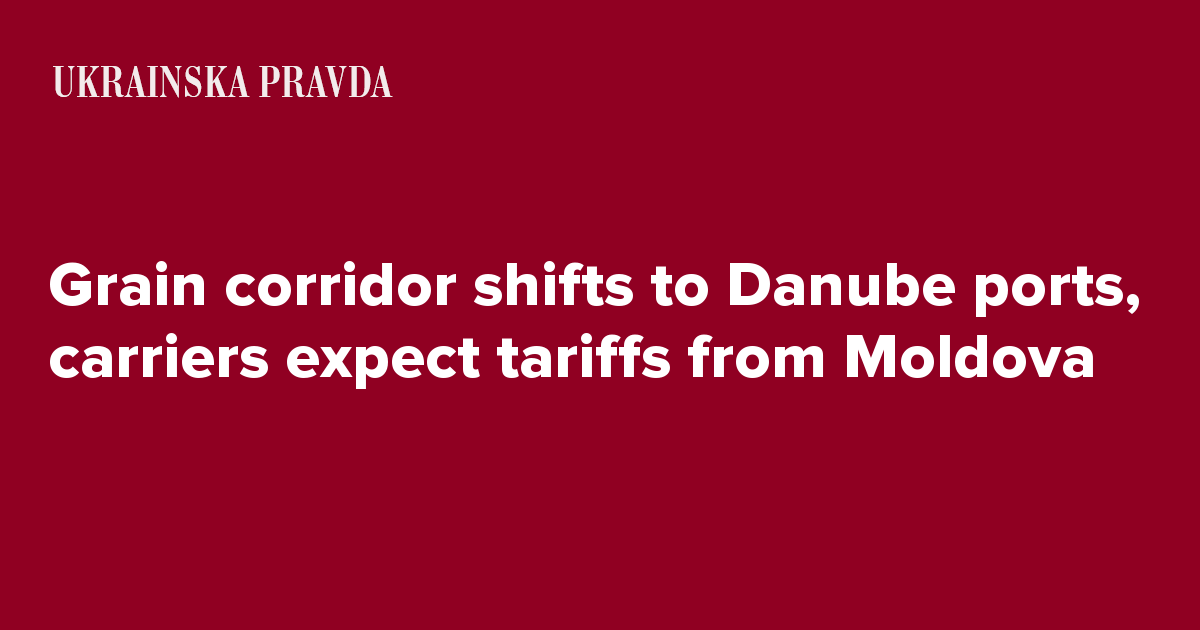Grain corridor shifts to Danube ports, carriers expect tariffs from Moldova

The blockage of the grain corridor within the framework of the Black Sea Grain Initiative has changed the order of railway transportations to the ports of the Danube river, and the tariffs are being discussed with Moldova. Source: Valerii Tkachov, deputy head of the Department of Commercial Work of the Ukrzaliznytsia (UZ), the Ukrainian national railway operator, during the meeting with cargo carriers, as reported by Interfax-Ukraine Reportedly, ineffective operation of the grain corridor has led to the decrease in railway transportations in the directions of the Greater Odesa sea ports (Odesa, Chornomorsk and Pivdennyi ports - ed.).
"Four to six vessels are inspected here weekly, yesterday not a single one has been inspected, and today they are being blocked in various ways," Tkachov reported.
Advertisement:"Nobody can say for sure, whether the Black Sea Grain Initiative will operate, but my personal forecast is that with a 90% likelihood the corridor will either be closed or will continue to operate as inefficiently as it does now," he added. Meanwhile, the cargo traffic has increased in the direction of the Danube ports in the cities of Izmail and Reni. At the moment, the carriers are waiting for the new tariffs to be announced by the Moldovan railway.
Tkachov recalled that currently, the tariffs for transit transportation by railway through the territory of the Republic of Moldova are 57% higher than those of UZ. That is, they have risen by 8-11% [8% of basic increase of +3% in connection with the change of the Swiss franc exchange rate, which Ukraine and Moldova use for payments - ed.] since 1 July.
We have launched English Twitter! Follow us!
Tkachov remarked that Moldova has suggested that Ukraine update tariffs for agricultural products transportation.
UZ is yet to resolve the issues connected with the principles of applying the reduction (summing up according to the nomenclature for all expeditors or only one carrier) and the methods of its calculation (monthly or quarterly). "We have posed a number of methodological questions in writing and will send a corresponding request to our Moldovan colleagues," Tkachov reported, adding that the Ukrainian side is considering the possibility of providing reductions for transit cargo transportations for Moldova. Background:
The Ministry of Foreign Affairs of Russia claimed on 4 July that it does not deem it possible to continue contributing to the Black Sea Grain Initiative, signed last summer in order to export the grain from the Ukrainian ports. Financial Times reported earlier that the EU is considering the proposition of creating a subsidiary of the sanctioned Rosselhozbank in order to preserve the grain initiative. This proposition has been criticised by Olha Trofimtseva, Foreign Ministry Ambassador-at-Large.
Journalists fight on their own frontline. Support Ukrainska Pravda or become our patron!